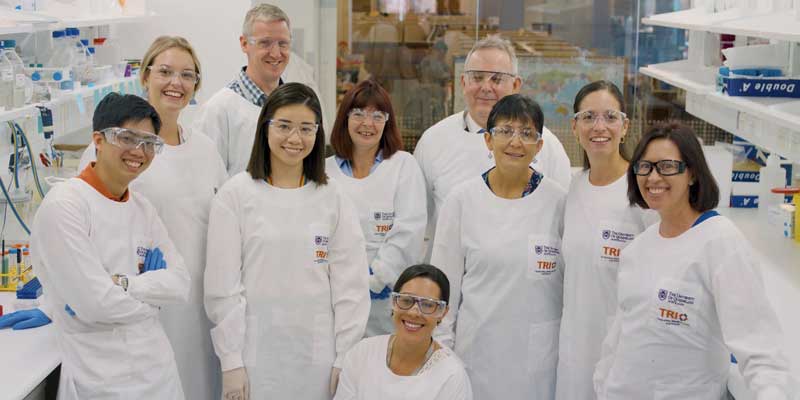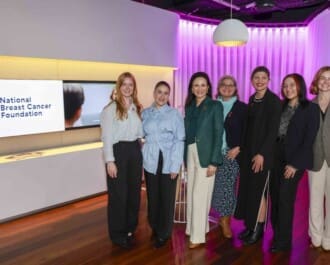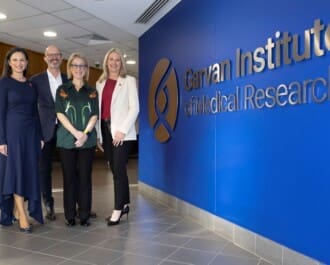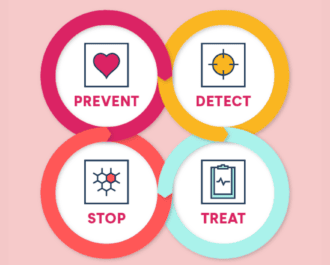
Scientists from the University of Queensland have discovered a surprising drug combination that may help in the fight against breast cancer. An extremely high intravenous dose of the cheap anti-nausea drug Stemetil® acts to “glue” immune cells, via chemotherapy drugs, to cancer cells, improving their efficacy and patient outcomes.
The study, led by NBCF-funded researcher Associate Professor Fiona Simpson, was recently published in the prestigious journal Cell . A/Prof Simpson began the work after losing her mother to cancer in 1999. Researchers and doctors from UQ’s Diamantina Institute and Institute for Molecular Bioscience, The Princess Alexandra Hospital, The University of Newcastle and The University of Sydney collaborated on the study.
A/Prof Simpson said that the study could revolutionise the way that chemotherapies are designed and administered to patients. The treatment can be applied to existing cancer drugs like cetuximab, traztuzumab and avelumab. Its efficacy was shown in both mouse-derived tumours and in five end-stage cancer patients.

Associate Professor Fiona Simpson and her team at the University of Queensland.
“The anti-nausea drug Stemetil® added intravenously at relatively high concentration to treatments like cetuximab creates a trap, glueing the cetuximab to the cancer cell’s surface,” A/Prof Simpson said. “The result is that cancer cells become stationary targets that can no longer escape. This makes the natural killer immune cells attach to the tumour cells like a zipper and kill the cancer – the ’zippering’ action is something we have never seen before.”
In addition to the immediate treatment-enhancing effect, the addition of Stemetil® appears to provide some residual protection against cancer recurrence. In a mouse model, the researchers re-injected the same cancer back into the animal one month after successful treatment with the combination therapy.
“Amazingly, their cancer did not come back – as if the new combination, in addition to being more effective, was also able to teach the immune system how to better recognise cancer cells,” A/Prof Simpson said. “The mice developed this long-term immunity to the cancer cells they initially had.”
Early safety clinical trials are now underway with cancer patients at the Princess Alexandra Hospital.
This research was supported by the PA Research Foundation, NHMRC, National Breast Cancer Foundation, Cancer Council Queensland, Children’s Medical Research Institute and Rotary International (Nundah).
More News Articles
View all News


